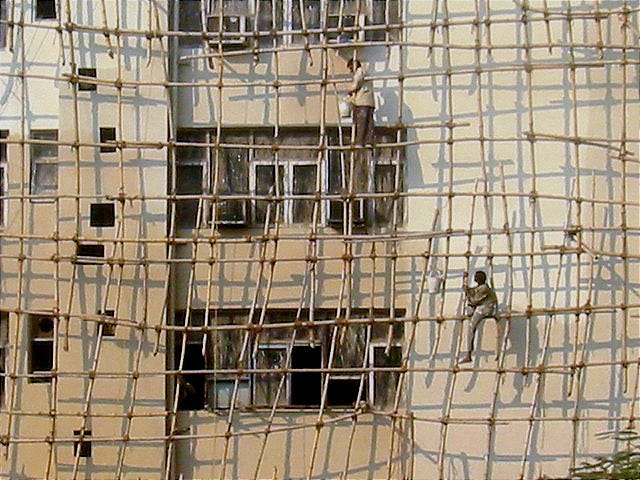Iterative & Agile Frameworks for Resilience
How do we map a way forward when we can't see the way?
For two beautiful, tragic, and complicated trips around the sun, I lived in Kolkata, India. I haven’t been able to talk about this chapter of my life much over the last fifteen years. In part, because of the residual trauma and PTSD diagnosis from my time there, but also because of the deep grief and long lasting dissonance of not leaving in the way that I hoped, that honored the relationships I’d formed over those two years. Part of resilience and healing is sense making and story telling, so I’ve decided to gently weave parts of my life in K-town into some of these writings.
One of my favorite things to witness in Kolkata was the masons, carpenters, and mistris who would nimbly climb up and across massive bamboo scaffolding, built around the multi-storied buildings they were diligently bringing to life, brick by brick. The scaffolding seemed rickety, fragile and dangerous, but time and again I watched buildings rise, and the matrix of bamboo lattice proved to be strong, flexible, and quickly adaptable to the changing needs that emerged in the project.
In my still moments, I have been noodling all week around how best to conceptualize what my hope is for the content on this page. As we look to inauguration day three months from now, I believe this is the time to start constructing agile scaffolding / frameworks to help sustain our resilience and resistance over the years to come. These frameworks can help bring more flexibility and structure in how we use our energy and time as we work towards what we are trying to build and towards what we are trying to save from destruction. There is also a counter-intuitive easefulness that can come from being on the scaffolding, one step removed from the building itself, giving you the freedom of stability to adapt to the exterior landscape that is constantly shifting and uncertain.
For this project, I’m Not Saying There’s Hope, I am planning to explore each of the following frameworks in these writings, as they emerge over time:
The three broad frameworks are Connection, Sense Making, and Thoughtful Action. I will spend the majority of these first two months exploring the first two, and get into Thoughtful Action more as we get closer to the transition. I’m unsure exactly what will emerge, or if I will continue this project after January 20th, but here is a very long-view summary of the three themes / frameworks / scaffolding:
Connection
Naming and creating and nurturing a dynamic mosaic of connection that is supportive, adaptive, responsive, and flexible.
Sense Making
Learning and practicing modes of thought that decrease unnecessary suffering and build the capacity to reason, intuit, and tell meaningful stories.
Thoughtful Action
Grounding in order to act vs. react. Skills for slowing down and taking mindful and strategic action to protect the vulnerable.
We’ll dive into an overview of the Mosaic of Connection in the next post and I will provide examples and guidance on how to start building yours.
Reflection Questions
I’d love to hear in the comments or DM what comes up for you when you think of the concept of building a scaffolding to sustain your resilience and resistance.
What parts of your story are you still trying to make sense of? How can you offer this part space, empathy, and a voice this week?
Are you drawn to one of the frameworks more than the others? Why do you think that is?
What emotions does the idea of building a scaffolding elicit in you?
Overwhelm? Excitement? Cynicism? Exhaustion? Momentum?
What are these feelings pointing to that is really important to you? If you can identify it, take a moment to honor what matters deeply to you.









I love your noodle! And I love your heart! And I really resonate with this whole concept of scaffolding! I have been thinking along these lines myself, this year, and the analogy I made was "shoring up our infrastructure," to withstand whatever is coming. I've been thinking a lot about neighborhoods and neighbors and how it could be crucial in the future, to have made strong bonds with our (geographically) closest fellow humans. Now I want a whole list of my neighbors/kids, what they're good at, what their specific needs are, etc. Ha!
Thanks for this Jo. Scaffolding has been a concept I’ve used before too. Thank you for helping us to think/feel/see what it might be now/going forward. I’m entering into the season where I slow down/turn inward, and this creation of yours will be something to aid me!